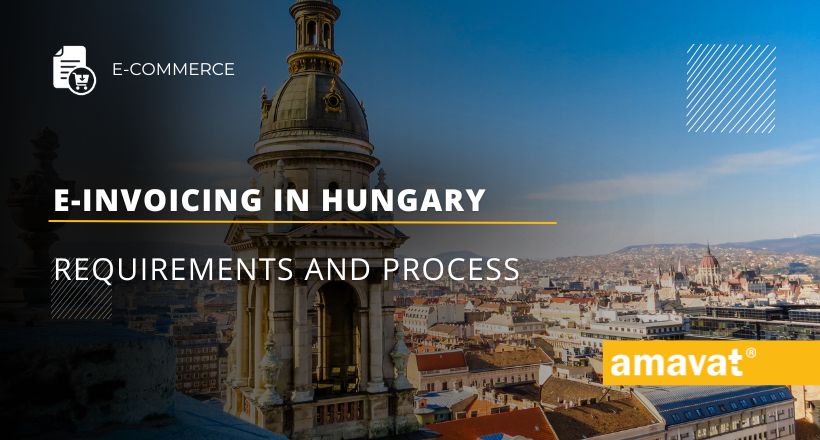E-invoicing in Hungary: Requirements and process
E-invoicing has become an integral part of many tax systems worldwide, and Hungary is no exception. The implementation of electronic invoices in Hungary has undergone many changes and adjustments, and knowledge of the applicable regulations is crucial for companies operating in this market. In this article, we will discuss who is required to use e-invoices in Hungary, describe the e-invoicing process, and outline the required formats and archiving issues.
Who is required to use hungarian e-invoices?
Unlike some countries, e-invoicing in Hungary is not mandatory for all Business-to-Government (B2G) and Business-to-Business (B2B) transactions. However, there is an obligation to report invoices in real-time (RTIR) for all companies. Under RTIR, e-invoicing is not strictly regulated but is permitted. In practice, this means that invoice data must be transmitted to the tax authority in a specified format shortly after issuance.
Since April 1, 2021, disclosing data of all invoices in Hungary has become mandatory under the VAT Act. This also applies to business transactions to customers (B2C) and transactions issued by individuals not resident in Hungary.
Description of the e-invoicing process
The Hungarian tax system operates based on the Nemzeti Adó és Vámhivatal (NAV), or the National Tax and Customs Administration. Before the introduction of e-invoicing, NAV introduced the electronic real-time reporting (RTIR) system. Under this system, invoice details must be transmitted to NAV immediately after issuance. An invoice is considered issued when the details are finalized by the invoicing software. Invoices can be issued in Hungarian or another foreign language, but official translations into Hungarian may be required for inspection purposes.
Ensuring integrity and authenticity
To ensure integrity and authenticity, specific standards regarding electronic invoice formats apply. The RTIR system typically requires an XML format, although other formats such as .txt, .csv, .pdf, etc., are also accepted.
Archiving requirements
Archiving requirements for e-invoices in Hungary are clear: while electronic invoices are reported to the tax authority, the obligation to retain them lies with the taxpayer. The e-archiving process can be carried out using various methods, provided they meet legal requirements, ensuring confidentiality, integrity, and document availability. These methods may include:
- Utilizing electronic signatures and maintaining an internal archive compliant with legal requirements, including ensuring the validity of signatures throughout the retention period.
- Using services of trusted providers that offer appropriate security measures.
- Employing closed archiving systems based on comprehensive documentation and systematic evaluations.
- Generating invoice hash values, transmitting them to the tax authority, receiving confirmation, and retaining all these documents.
- Utilizing electronic data interchange (EDI) systems.
According to legal requirements, documents should be retained for a specified period, i.e., eight years from the annual financial report and five years for tax purposes, as well as eight years for accounting purposes.
Summary
The article discussed the essence of e-invoicing in Hungary, emphasizing the need for compliance with applicable regulations. While e-invoicing is not widespread in all B2G and B2B transactions, real-time invoice reporting is required for all companies. The e-invoicing process is based on the RTIR system operated by the National Tax and Customs Administration. The article thoroughly examined the required formats for electronic invoices and archiving issues, highlighting the importance of document integrity and proper retention for a specified period. For businesses in Hungary, understanding and adhering to these principles are crucial for avoiding penalties and ensuring operational smoothness.
For any questions or additional information, we encourage you to contact our team of experts, ready to provide assistance and support: Contact us – amavat®.






